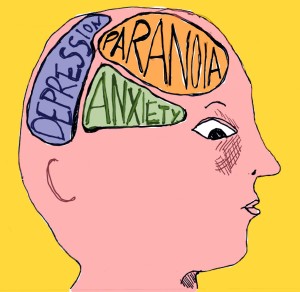One in four people suffer from mental health problems in their lifetime. The UK government is calling for better mental health provision whilst cutting funding for the NHS. There are deep cuts happening in mental health services across the country. You probably haven’t heard this as it is being swept under the carpet. Finally, there is a flicker of hope as the BBC begins to publicise this dichotomy.
Mental health charities warn cuts ‘put lives at risk’.
The Mental Health Foundation, Rethink Mental Illness, Mind, the NHS Confederation Mental Health Network and the Centre for Mental Health and the Royal College of Psychiatrists have released a letter on Wednesday warning that planned cuts for next year will put lives at risk as the system is already underfunded.
At this point, people with mental illness are being failed, massively. The long term nature of mental illness means that this is a problem that will come home to roost for society in the future. Politics on the other hand is a short term activity and is only concerned with the immediate future and winning the next popularity contest. Politicians like Cameron and Clegg will not be in government when the effects of these cuts become chronic. They will be making after dinner speeches about their time in government whilst the human cost is finally counted. For them it will be “someone else’s problem”. For those who lose their quality of life or a loved one there is a real cost.
In the current climate, there are some people for whom the human cost will always seem irrelevant. This shouldn’t need saying but in recent years there is a need to spell it out: there is a serious economic consideration to creating a system in which thousands of people are left as “unproductive members of society”:
Sean Duggan, chief executive of the Centre for Mental Health, said early intervention programmes were “very good value for money” and the prospect of budget cuts was “very worrying”.
“Early Intervention in Psychosis services are known to be highly effective in helping young people to negotiate their first episode of psychosis”, he said.
“They offer hope of a brighter future by helping young people to stay in education, to get and keep work, and to support their physical health.”
He described the cuts as a “false economy”.
“They save the NHS £9 and the wider economy another £9 for every £1 invested in them.”
Facilitating people back to “productive lives” makes economic sense for the country. Consigning people to a lifetime of mental illness makes no economic sense.
Please, please publish this far and wide. This is a problem that the current government is creating for the future!

 If you are a regular follower of this blog you will have noticed that both myself and The Bassplayer are keen to promote work with people who suffer from mental illness. As priest I often encounter mental illness. The Bassplayer is a clinical psychologist so as you can imagine she sees the effects of mental illness daily.
If you are a regular follower of this blog you will have noticed that both myself and The Bassplayer are keen to promote work with people who suffer from mental illness. As priest I often encounter mental illness. The Bassplayer is a clinical psychologist so as you can imagine she sees the effects of mental illness daily.